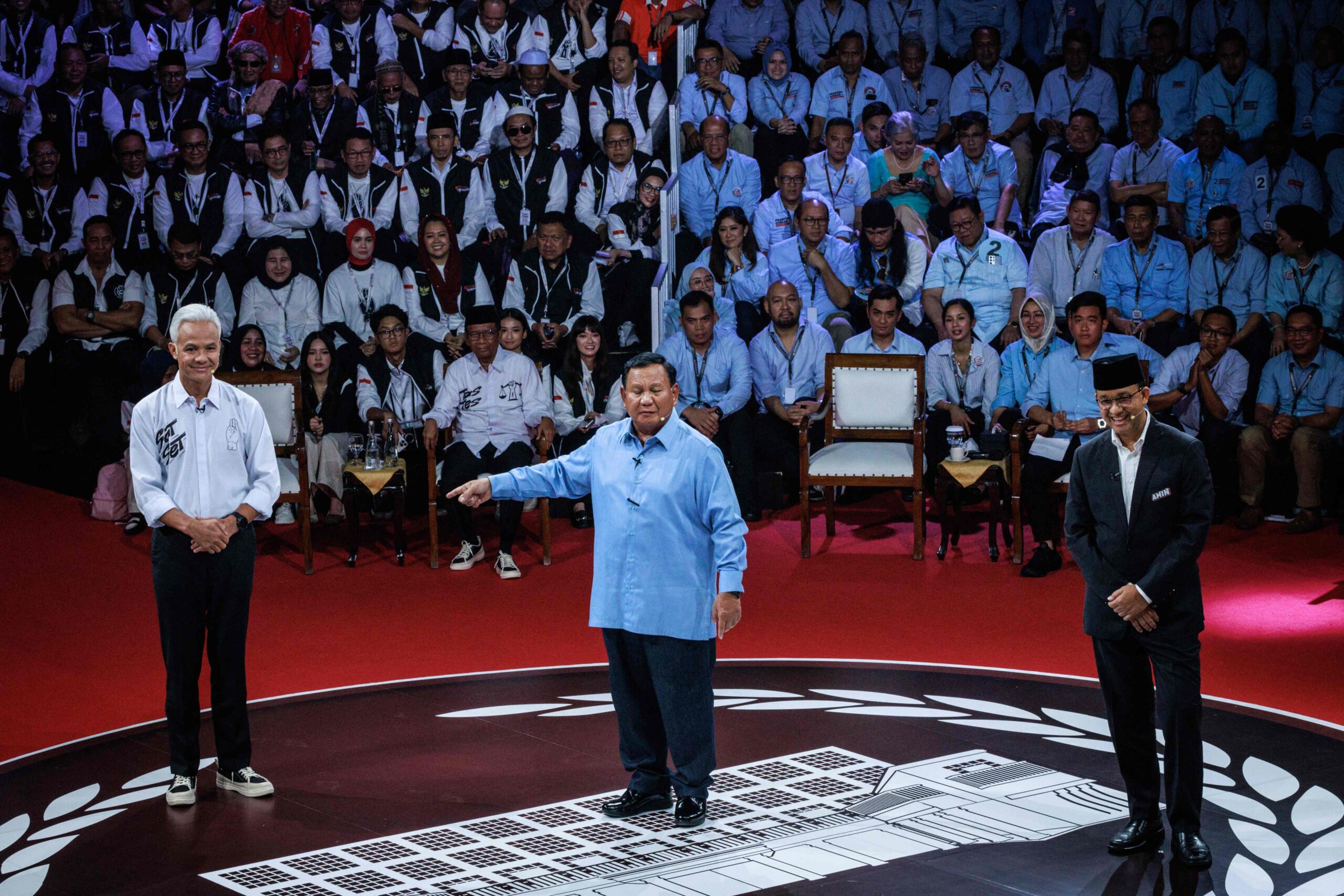JAKARTA (ANN/THE JAKARTA POST) – While the focus of the Indonesian presidential race has largely been on predicting potential runoff contenders, all three campaigns are now under scrutiny for alleged violations, just four weeks into the official campaign period.
Recent polls indicate that presidential candidate Prabowo Subianto and his running mate Gibran Rakabuming Raka are the frontrunners for the February 2024 election.
Meanwhile, rivals Ganjar Pranowo and Mahfud MD, as well as Anies Baswedan and Muhaimin Iskandar, are engaged in a closely contested battle for a spot in a potential runoff.
However, Prabowo and Gibran themselves face accusations of campaign violations, as evidenced by the General Elections Commission (KPU) reprimanding Gibran for his conduct during last week’s inaugural presidential debate.
“In a meeting evaluating [the first presidential debate], we have conveyed things that were not in accordance with the agreement we made at the beginning, including a vice presidential candidate giving signs and codes to encourage his supporters. That’s not allowed,” KPU chair Hasyim Asy’ari said on Monday, as quoted by an online news source.
He referred to a moment in the debate when Gibran, seated in the audience, stood up and signalled his supporters to applaud Prabowo’s response to a question from Anies.
Anies had questioned Prabowo about his feelings regarding Anwar Usman, the former Constitutional Court chief justice found guilty of an ethics violation. The violation was related to a court decision allowing Gibran, Anwar’s nephew, to run for the vice presidency.
Hasyim stated that he reprimanded Gibran during the Monday meeting and reminded all three campaign teams to adhere to the rules in preparation for the second election debate scheduled for Friday.
The upcoming debate, featuring the three vice presidential candidates, will delve into topics such as the economy, investment, trade, and infrastructure.

Prabowo faced social media criticism for the presence of Major Teddy Indra Wijaya, an active Indonesian Military (TNI) officer serving as Prabowo’s aide at the Defense Ministry, at last week’s debate. This raised concerns about partisanship within ostensibly neutral state institutions.
Gibran, on the other hand, was reported to the Elections Supervisory Agency (Bawaslu) for alleged campaign activities at a Car-Free Day event in Jakarta, where he distributed milk to children. A 2016 Jakarta gubernatorial regulation prohibits campaign activities at Car-Free Day events.
Gibran denied that giving out milk constituted campaigning, stating earlier this month that he had no campaign imagery or materials at the event and did not ask people to vote for him. Bawaslu’s Jakarta office announced on Sunday that it was still investigating the allegations.
“[We have decided to add] seven more days [to the investigation period], as it’s still ongoing. We will convey the overall results [of the investigation] at a later date,” Bawaslu member Benny Sabdo said at a Sunday press conference, as quoted by Kompas.com.
The office also reprimanded the All-Indonesia Village Administration Association (Apdesi) for its role in organising a gathering in late November that many saw as an attempt to marshal support for the Prabowo-Gibran ticket among village heads.
Prabowo and Gibran are not the only candidates to have come under Bawaslu’s lens. Vice presidential candidates Mahfud and Muhaimin, the running mates of Ganjar and Anies, respectively, were also reported to the agency for alleged misconduct.
The reports against them, which were filed with Bawaslu last month, objected to statements they made at the KPU’s ballot number drawing event on November 14, some two weeks before the start of the official campaign period.
In their speeches at the event, both Mahfud and Muhaimin used a traditional rhyming poetic form called a pantun to call on the public to vote for them. The reports accused both candidates of campaigning ahead of the official period.
Mahfud’s camp and Muhaimin himself have denied that their pantun were in violation of KPU regulations, saying their poems were in jest and not a serious attempt to win votes.
Bawaslu went on to rule on December 7 that Mahfud and Muhaimin’s poems did not contravene any laws or regulations.






